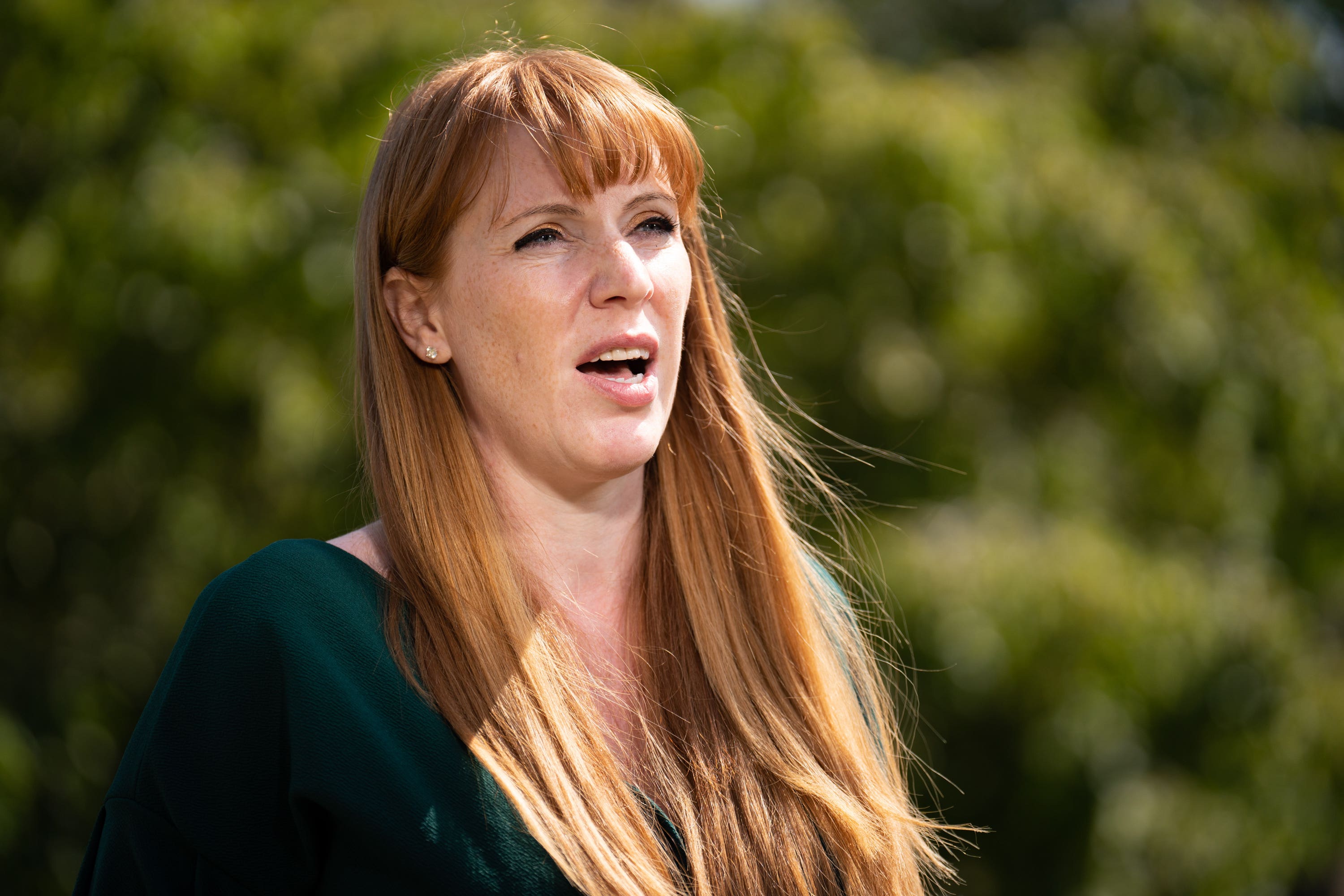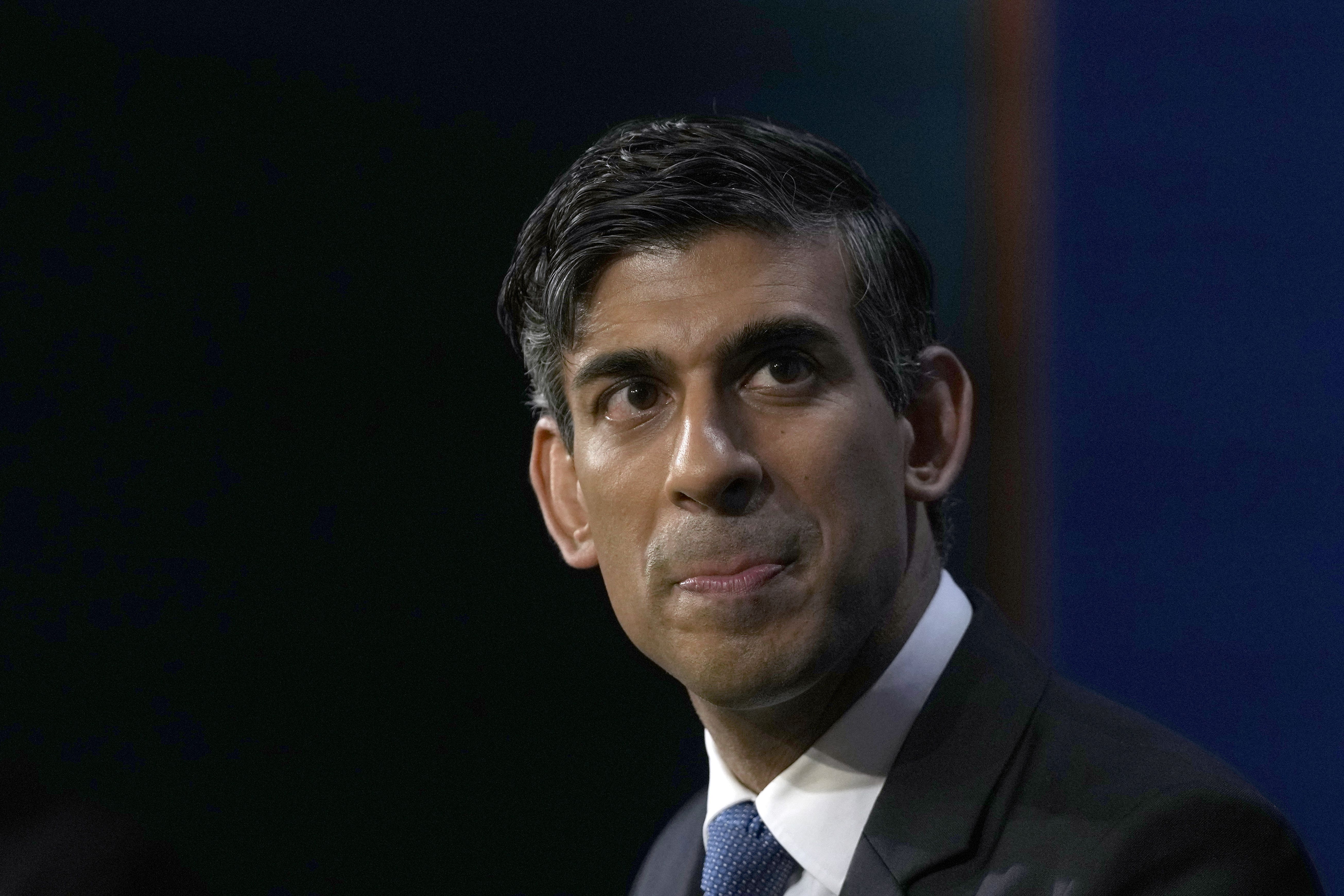Are the triple lock’s days numbered? Labour refuses to commit to key pension policy
Pensioners set for bumper pay rise – but cabinet minister says floor on payments ‘not sustainable’ in the long-term
Your support helps us to tell the story
This election is still a dead heat, according to most polls. In a fight with such wafer-thin margins, we need reporters on the ground talking to the people Trump and Harris are courting. Your support allows us to keep sending journalists to the story.
The Independent is trusted by 27 million Americans from across the entire political spectrum every month. Unlike many other quality news outlets, we choose not to lock you out of our reporting and analysis with paywalls. But quality journalism must still be paid for.
Help us keep bring these critical stories to light. Your support makes all the difference.
The future of the state pension “triple lock” appears in doubt after Angela Rayner joined Rishi Sunak in refusing to say whether the measure would stay after the next election.
A cabinet minister also warned the floor on payments was“not sustainable” in the long-term, while William Hague, the former Tory leader, called for it to be phased out.
It came as official figures showed pensioners are set for a more than 8 per cent boost next year after record wage growth continued, at a cost of billions.
Pay, including bonuses, grew by 8.5 per cent in the three months to July, meaning the state pension will rise by the same amount in April thanks to the lock – which commits ministers to an increase by whichever is highest – wage growth, inflation or 2.5 per cent.
Labour’s deputy leader Ms Rayner refused to commit to keeping the triple lock in place if Labour wins the next election, saying her party would not make “unfunded” spending commitments.
Speaking to BBC Breakfast, she promised Labour “will make sure pensioners and children and everyone in the UK can get on”.
At the weekend Mr Sunak also refused to pledge that his party’s next manifesto would contain a commitment to the triple lock.
Labour said the Conservatives promised to maintain the lock at the last election and urged the government to stick to that commitment.

“As Angela said, all future spending commitments for after the election will be laid out in our manifesto when we know the state of the public finances, as is usual practice.”
No 10 said the government “remained committed” to the triple lock, but would not be drawn on how much the state pension would rise, saying that would be set out later this autumn.
But work and pensions secretary Mel Stride told the BBC that that in the long-term the triple lock was “not sustainable”.
And he did not rule out using a lower figure - based on earnings without bonuses - of around 7.8 per cent.
Speaking to reporters during his trip to the G20 summit in India, Mr Sunak said: “We’re not going to speculate on the election manifesto now. I’ve got plenty to get on with between now and then.”
As a backlash grew, Sunak was accused of “screwing the last part of the Vote Leave coalition” by Boris Johnson’s former chief of staff Dominic Cummings.
Tuesday’s bumper wage growth figures will also pile pressure on the Bank of England to raise interest rates yet again later this month.
The squeeze on public finances, combined with sticky inflation, has also led Mr Hunt to warn it is “unlikely” there will be spare money for tax cuts in his autumn budget.
The chancellor said bringing down inflation remained his priority, and cutting taxes risked making matters worse.
In an interview with Bloomberg TV, Mr Hunt warned: “We have to be careful not to pump extra money into the economy, into people’s pockets, as that will pump up inflation.
Asked whether tax cuts were affordable, he said: “I think it’s unlikely because since the spring budget, when the last numbers were published, we’ve seen inflation stickier than was forecast at the time and that means that interest payments are high.”

Responding to Tuesday’s wage growth figures, Mr Hunt said: “Wage growth remains high, partly reflecting one-off payments to public sector workers, but for real wages to grow sustainably we must stick to our plan to halve inflation.”
Think tank the Institute for Fiscal Studies (IFS) said the basic state pension is set to rise from its current £156.20 per week to £169.50.
A full new state pension – which those who reached state pension age since April 2016 can receive – would rise from £203.85 per week to £221.20, it said.
Associate director Jonathan Cribb said: “Since its introduction in 2010, the triple lock, together with the introduction of the new state pension, has significantly increased the generosity of the state pension relative to earnings.
“But this comes at a cost to public finances.”
The triple lock has added £11bn to public spending in 2023-24 compared to increasing the rate in line with prices or just earnings, the IFS said.
Subscribe to Independent Premium to bookmark this article
Want to bookmark your favourite articles and stories to read or reference later? Start your Independent Premium subscription today.








Join our commenting forum
Join thought-provoking conversations, follow other Independent readers and see their replies
Comments